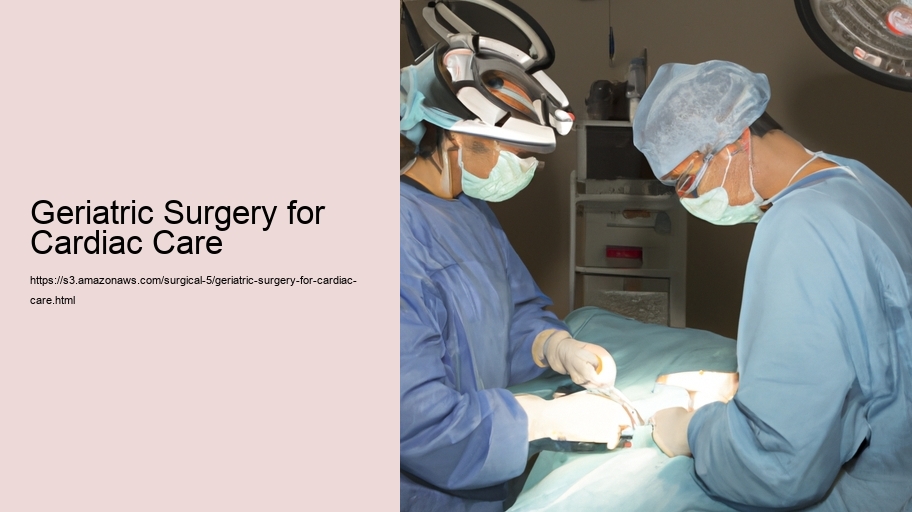The intersection of geriatric care and cardiac surgery represents a vital and growing field of medicine that addresses the unique challenges of providing heart surgery to older adults. As life expectancy continues to rise, an increasing number of elderly patients are presenting with cardiac conditions that require surgical intervention. The term "geriatric surgery for cardiac care" encapsulates a set of principles, practices, and considerations tailored to optimize outcomes for this distinct patient population.
The geriatric population, typically defined as individuals aged 65 and older, is physiologically different from their younger counterparts. With aging comes a natural decline in organ function and physiological reserve, making the elderly more vulnerable to the stress of surgery and the complications that may follow. This vulnerability necessitates a specialized approach to preoperative evaluation, surgical management, and postoperative care.
One of the foundational aspects of geriatric surgery for cardiac care is the comprehensive preoperative assessment. This goes beyond the standard evaluation to include geriatric-specific domains such as cognitive function, frailty, nutritional status, and social support systems. The presence of comorbidities such as diabetes, hypertension, and chronic kidney disease, which are more prevalent in the elderly, must also be carefully managed. Assessing these factors helps to stratify risk and tailor the surgical approach to minimize complications and promote recovery.
In the operating room, cardiac surgeons must adapt their techniques to accommodate the physiological changes of the elderly. For instance, minimally invasive procedures may be preferable to traditional open-heart surgery when appropriate, as they often result in less trauma and a quicker recovery. Moreover, advancements in technology, such as transcatheter valve replacements, provide alternatives to conventional surgery that are particularly beneficial for high-risk geriatric patients.
Anesthesia is another critical component of geriatric cardiac surgery. Anesthesiologists must carefully balance the need for pain control with the potential for adverse reactions and drug interactions in a population that often has multiple medical prescriptions. The choice of anesthetic agents and the management of hemodynamics during surgery are adjusted to account for the elderly patient's reduced cardiac reserve and increased sensitivity to medications.
Postoperative care is just as important as the surgery itself when it comes to the geriatric population. Recovery in older adults can be complicated by a higher risk of delirium, prolonged hospital stays, and a greater need for rehabilitation services. A multidisciplinary team approach involving cardiologists, geriatricians, physical therapists, nutritionists, and social workers is essential to address these challenges. This team works collaboratively to monitor for complications, manage pain, encourage mobility, provide nutrition, and support the patient through the rehabilitation process.
Moreover, the goal of geriatric cardiac surgery is not only to prolong life but also to preserve or improve the quality of life. This includes considerations such as the patient's ability to return to their home environment, maintain independence, and engage in meaningful activities. Discussions about the goals of care, advanced directives, and patient preferences should be integral to the surgical planning process.
In conclusion, geriatric surgery for cardiac care is a complex and nuanced field that requires a tailored approach to meet the needs of older adults. It encompasses a thorough preoperative assessment, surgical and anesthetic techniques suited for the elderly, and comprehensive postoperative care, all aimed at optimizing outcomes for this vulnerable population. As our society continues to age, the importance of this specialized field will only grow, necessitating ongoing research, training, and innovation to ensure that our oldest patients receive the best possible cardiac care.
